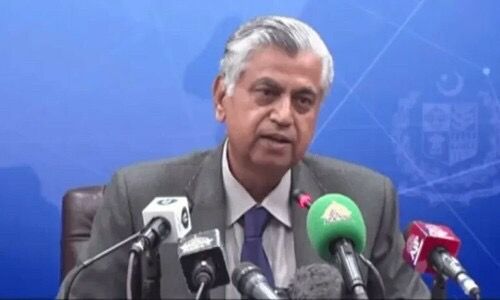Caretaker Minister for Information and Broadcasting, Murtaza Solangi, has expressed the federal government’s commitment to ensuring that the recent reduction in petroleum prices translates into lower costs for essential commodities, ultimately benefiting the common man. Speaking during a televised program on PTV, Minister Solangi emphasized that directives have been dispatched to all provincial governments, mandating them to enforce an active price control mechanism.
As the nation navigates through a transitional caretaker government, Minister Murtaza Solangi outlined the administration’s dedication to fostering a more robust and stable economy for the upcoming elected government. This announcement comes at a critical juncture, bearing significant implications for the everyday lives of the populace.
Government’s Pledge to Mitigate the Impact of Petro Price Fluctuations
In a move that echoes the government’s commitment to addressing the needs of the common citizen, Caretaker Minister Murtaza Solangi has announced a concerted effort to ensure that the recent decrease in petroleum prices will not merely be a statistical change but a tangible relief for the masses. His statements during the PTV program reaffirm the government’s resolve to pass on the benefits of this price reduction by subsequently lowering the costs of essential commodities.
The relationship between petroleum prices and the overall cost of living is an inseparable one, with fluctuations in fuel prices often having a ripple effect on the prices of goods and services across the board. With this understanding, the federal government’s intention to proactively manage and regulate prices of essential goods is indeed a commendable step.
Empowering Provincial Governments for Effective Price Control
Minister Solangi’s announcement was accompanied by a directive sent to all provincial governments, urging them to implement a robust price control mechanism. This directive underscores the government’s commitment to ensuring that the reduction in petroleum prices directly translates into lower costs for consumers.
By empowering provincial authorities to regulate and control prices, the government aims to foster an environment where the price of daily necessities remains stable and affordable. This, in turn, seeks to alleviate the financial burdens faced by the common man and enhance their overall quality of life.
Caretaker Government’s Focus on a Stable Economy
The timing of this commitment is noteworthy, as it emerges from a caretaker government currently overseeing the transition period between elected governments. Minister Murtaza Solangi underscored the caretaker setup’s dedication to leaving behind a more resilient and stable economy for the incoming elected government. This commitment to economic stability carries the potential to shape the future direction of the country’s financial well-being.
While caretaker governments traditionally have a limited tenure, their actions can have a lasting impact. The focus on economic stability and providing relief to the common man highlights the caretaker administration’s sense of responsibility towards the nation’s economic welfare.
Minister Murtaza Solangi’s announcement signifies the government’s dedication to ensuring that the decrease in petroleum prices translates into tangible benefits for the common man. By empowering provincial governments to enforce price control mechanisms, the government seeks to stabilize the cost of essential goods and provide relief to the populace. This commitment to economic stability during the caretaker government’s limited tenure underscores its sense of responsibility toward the nation’s financial well-being.


